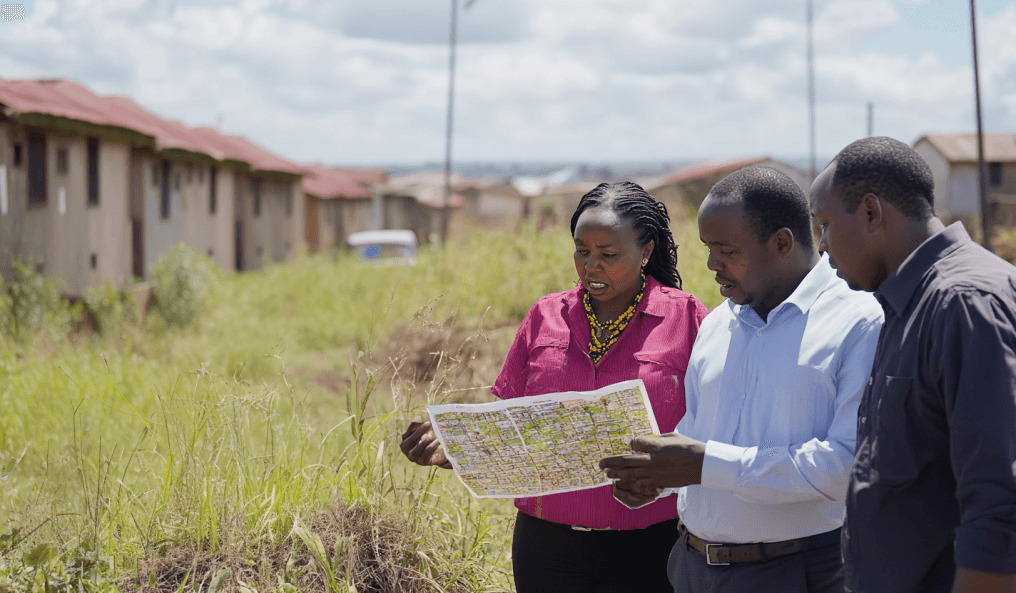The National Land Commission (NLC) plays a crucial role in safeguarding and managing land and property rights in Kenya. Established under the 2010 Constitution, the NLC is tasked with overseeing land administration, ensuring equitable access, and resolving land disputes.
As land remains a vital and often contentious resource in Kenya, the commission’s role is pivotal in addressing historical injustices and ensuring that property rights are upheld for all citizens.
In this article, we explore the key functions of the National Land Commission and how it contributes to protecting property rights in Kenya.
Table of Contents
1. Land Administration and Management
One of the core functions of the National Land Commission is to manage public land on behalf of the national and county governments. This includes:
- Allocating public land for development, agriculture, and other uses.
- Regulating land use planning and zoning to ensure orderly development.
- Administering land leases and renewals, particularly for leasehold properties.
By managing public land effectively, the NLC helps to ensure that property development in Kenya is sustainable, equitable and aligned with national goals.
2. Historical Land Injustices
Kenya’s colonial history and post-independence land policies resulted in numerous cases of land dispossession and historical injustices. The National Land Commission is responsible for addressing these long-standing grievances. It is empowered to:
- Investigate historical land injustices dating back to 1895.
- Recommend solutions, including compensation or restitution for affected communities.
- Oversee the resettlement of displaced persons.
This role is essential in reconciling the past and ensuring that all Kenyans have access to their rightful property.
READ MORE – The Shocking Mistake Every First-Time Land Buyer in Kenya Makes
3. Advisory Role to the National and County Governments

The NLC provides expert advice to both the national and county governments on land policies and the development of frameworks related to land use. This includes recommendations on:
- Policy formation around land tenure systems.
- Implementation of land reforms aimed at promoting equity and access.
- Monitoring land transactions and development projects to ensure they align with legal frameworks.
Through this advisory role, the NLC ensures that land management is in line with both constitutional provisions and the long-term development goals of the country.
4. Land Dispute Resolution

The NLC plays a critical role in resolving land disputes, which are common in Kenya due to competing land claims and unclear boundaries. The commission works to mediate and resolve these disputes through:
- Land inquiries and investigations.
- Making determinations on land ownership issues.
- Recommending legal or administrative actions to address conflicts.
By providing an impartial platform for resolving land-related conflicts, the NLC helps prevent land disputes from escalating into larger societal conflicts.
READ MORE: Navigating Land Grabbing Issues in Kenya
5. Issuance of Title Deeds and Registration of Land
Another important function of the NLC is to oversee the issuance of title deeds and the registration of land ownership. By ensuring that land ownership is properly documented and registered. The commission helps secure property rights and reduce cases of land fraud or illegal transactions.
- The NLC collaborates with the Ministry of Lands and other bodies to streamline land registration processes.
- It ensures that land titles are issued in a timely and transparent manner.
READ MORE – Everything You Need to Know About Title Deeds and Land Ownership in Kenya
6. Regulation of Land Use
The NLC also regulates land use to promote responsible development and environmental sustainability. This includes:
- Overseeing land use planning and zoning laws.
- Regulating the conversion of agricultural land for commercial or residential purposes.
- Ensuring that environmentally sensitive areas, such as wetlands and forests, are protected from inappropriate development.
By enforcing these regulations, the NLC ensures that Kenya’s natural resources are preserved for future generations while promoting balanced development.
READ MORE: Changes in Land Use and Zoning Laws Over the Years in Kenya
7. Compulsory Land Acquisition
In cases where the government needs to acquire private land for public projects, the NLC is responsible for overseeing the process of compulsory acquisition. This includes:
- Ensuring that affected landowners are fairly compensated.
- Making sure that land acquisition is done in accordance with the law.
- Handling disputes that may arise from compulsory acquisition.
This role is particularly important in major infrastructure projects, where land is required for the construction of roads, railways, or other public amenities.
8. Land Information Management
The NLC is involved in modernizing Kenya’s land records through the development of a comprehensive land information management system.
READ MORE: Ardhisasa: Kenya’s Newest Land Information Management Tech
This system helps:
- Digitize land records, making them more accessible and reducing the risk of fraud.
- Streamline land registration and transfer processes.
- Ensure transparency in land transactions.
By modernizing Kenya’s land information system, the NLC contributes to greater accountability and efficiency in land management.
READ MORE – What is The Procedure For Changing The Old Title Deed To The New Digital One?
Conclusion
The National Land Commission plays a pivotal role in protecting property rights and ensuring that land in Kenya is managed equitably and sustainably. From addressing historical injustices to overseeing land administration and resolving disputes, the NLC’s work has far-reaching implications for landowners, developers, and the country as a whole. As Kenya continues to grow and urbanize, the role of the NLC will remain central to ensuring that land remains a valuable and well-managed resource for all its citizens.



